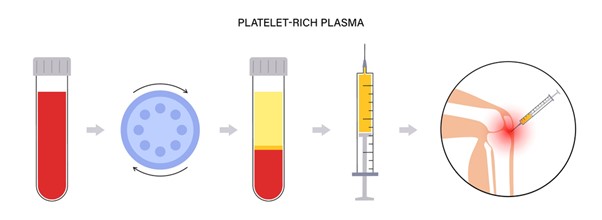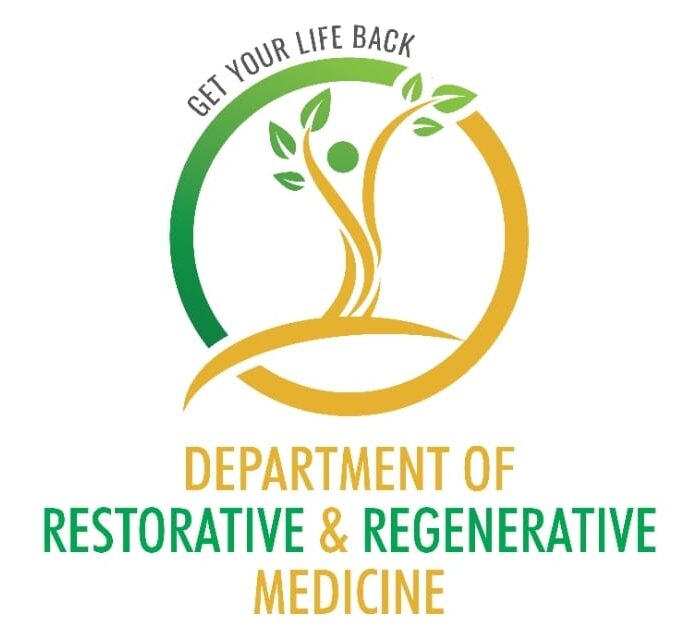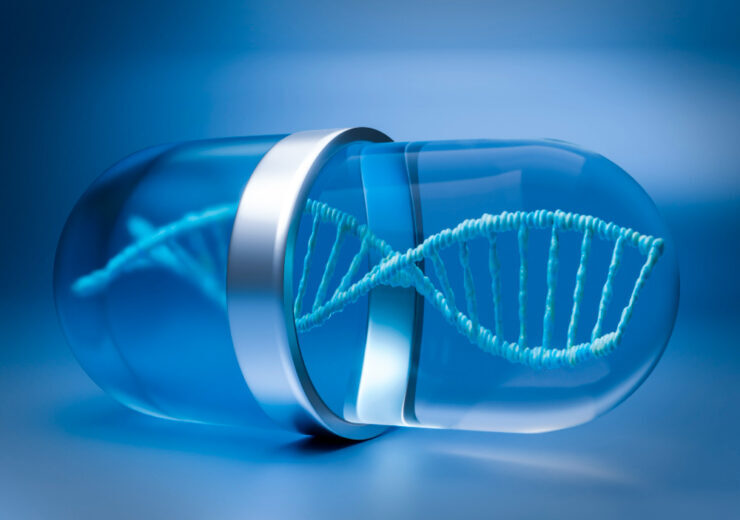Exploring PRP Therapy: A New Hope for Knee Pain Relief

Introduction to PRP for Knee
Are you or your loved one suffering from knee pain and considering Platelet Rich Plasma therapy for the knee? If so, you’re not alone. Knee pain, especially from cartilage damage and arthritis, can be a real hassle. But here’s some good news: PRP for knee cartilage damage arthritis is gaining popularity as a potential solution in this article, we will delve into the world of PRP treatment for knee injuries, exploring its benefits, procedure, and success stories. We’ll also talk about how to discuss PRP therapy with your healthcare provider.
What is PRP Therapy for the Knee?
PRP therapy stands for platelet-rich plasma treatment for knee injuries, a regenerative medicine for knee conditions and an approach that utilizes the healing properties of the patient’s own blood to alleviate knee pain. This cutting-edge treatment involves extracting a small sample of blood from the patient, which is then processed and separates the platelets from other components, resulting in a concentrated platelet-rich plasma solution. These platelets contain growth factors and other bioactive substances that stimulate tissue repair and regeneration.
How PRP Therapy Works for Knee Pain
PRP for knee involves a straightforward process. When injected into the knee joint, the concentrated platelet-rich plasma solution works to accelerate the natural healing process. The growth factors released by the platelets promote tissue regeneration, reducing inflammation and alleviating pain. By targeting the root cause of knee pain, PRP injections for knee pain aims to provide long-term relief and improve overall knee function.
Conditions Treated with PRP Therapy
PRP therapy shows promise in managing osteoarthritis-related knee pain, potentially slowing its progression. It’s also used as a non-surgical option for ligament injuries, aiding in improved strength and stability.
- Osteoarthritis
Osteoarthritis, a degenerative joint disease, can lead to severe knee pain and functional limitations. PRP therapy has shown promising results in managing osteoarthritis-related knee pain. By stimulating the production of new cartilage and reducing inflammation, PRP injections for knee pain can potentially help slow down the progression of osteoarthritis and improve joint function.
- Ligament Injuries
Ligament injuries, such as sprains or tears of the anterior cruciate ligament (ACL) or the medial collateral ligament (MCL), can cause significant knee pain and instability. The Platelet-Rich Plasma for the knee therapy has been increasingly used as a non-surgical treatment option for these injuries. The growth factors in PRP can stimulate the healing process, leading to improved ligament strength and stability.
The PRP Therapy Procedure
The procedure involves three key steps: blood extraction, plasma preparation, and injection.
1. Blood Extraction
To initiate the PRP therapy procedure, a small amount of blood is drawn from the patient’s arm, a crucial step in PRP for knee cartilage damage arthritis. The blood is collected using a sterile needle and placed in a specialized tube.
2. Plasma Preparation
Once the blood is collected, it undergoes a centrifugation process to separate the platelets from the rest of the blood, a key component for platelet-rich plasma for the knee. This process results in a concentrated platelet-rich plasma solution.
3. Injection Process
After the plasma preparation, the platelet-rich plasma is carefully injected into the affected knee joint. This is typically performed under ultrasound guidance to ensure accurate placement of the solution.
Expected Benefits and Results
PRP therapy offers a range of benefits and potential results for individuals struggling with knee pain. Patients who opt for PRP for knee cartilage damage arthritis in Mumbai at our RNR Medicine Department often experience significant improvements:
Pain Reduction and Improved Function
One of the primary goals of PRP treatment for knee injuries is to alleviate knee pain and improve overall joint function. Many patients report experiencing reduced pain levels, increased mobility, and improved quality of life following PRP treatment. While individual results may vary, PRP therapy has the potential to provide significant relief.
Considerations and Potential Risks
Before considering platelet-rich plasma for the knee pain relief, it is crucial to discuss the procedure with a healthcare provider. While PRP therapy is generally considered safe, it is not suitable for everyone. Some individuals may have contraindications or factors that can affect the treatment’s effectiveness. Consulting with a healthcare provider can help determine if PRP therapy is the right option and minimize potential risks.
Discussing PRP Therapy with a Healthcare Provider
To ensure the best possible outcome, it is essential to have an open and honest conversation with a healthcare provider about PRP therapy. They can provide valuable insights, guidance, and answer any questions or concerns regarding the procedure, expected outcomes, and potential risks. This collaborative approach will help determine if PRP therapy aligns with the individual’s unique situation and goals.
PRP therapy presents an exciting new frontier in the treatment of knee pain. By utilizing the healing properties of the patient’s own blood, PRP therapy aims to provide long-term relief and improved knee function. From managing osteoarthritis to treating ligament injuries, PRP therapy offers a potential solution for individuals seeking to overcome knee pain. By discussing PRP therapy with a healthcare provider, exploring success stories, and understanding the procedure, individuals can make informed decisions about their knee pain treatment options. With PRP therapy, a new hope for knee pain relief emerges, promising a brighter future for those affected by this debilitating condition.
For an in-depth exploration of PRP Therapy and its regenerative healing potential, we highly recommend reading our dedicated blog post on the topic : PRP Therapy: Unleashing the Power of Regenerative Healing
Platelet Rich Plasma Treatment Hospital for Knee in Mumbai
RNR Medicine Department at Jaslok Hospital is a top platelet-rich plasma Treatment Hospital for knee in Mumbai. In addition to providing the best platelet-rich plasma treatment in Mumbai, the department also offers rTMS (Repetitive Transcranial Magnetic Stimulation) treatment for conditions such as depression, migraine, and OCD (Obsessive-Compulsive Disorder). The Department of RNR Medicine is led by Dr Paresh Doshi, the best neurosurgeon in India in the field of stereotactic and functional neurological surgery. Choose our Hospital for PRP treatment in Mumbai, and take the first step towards a healthier, more vibrant you. Consult with our experts and embark on your journey to healing and rejuvenation.





